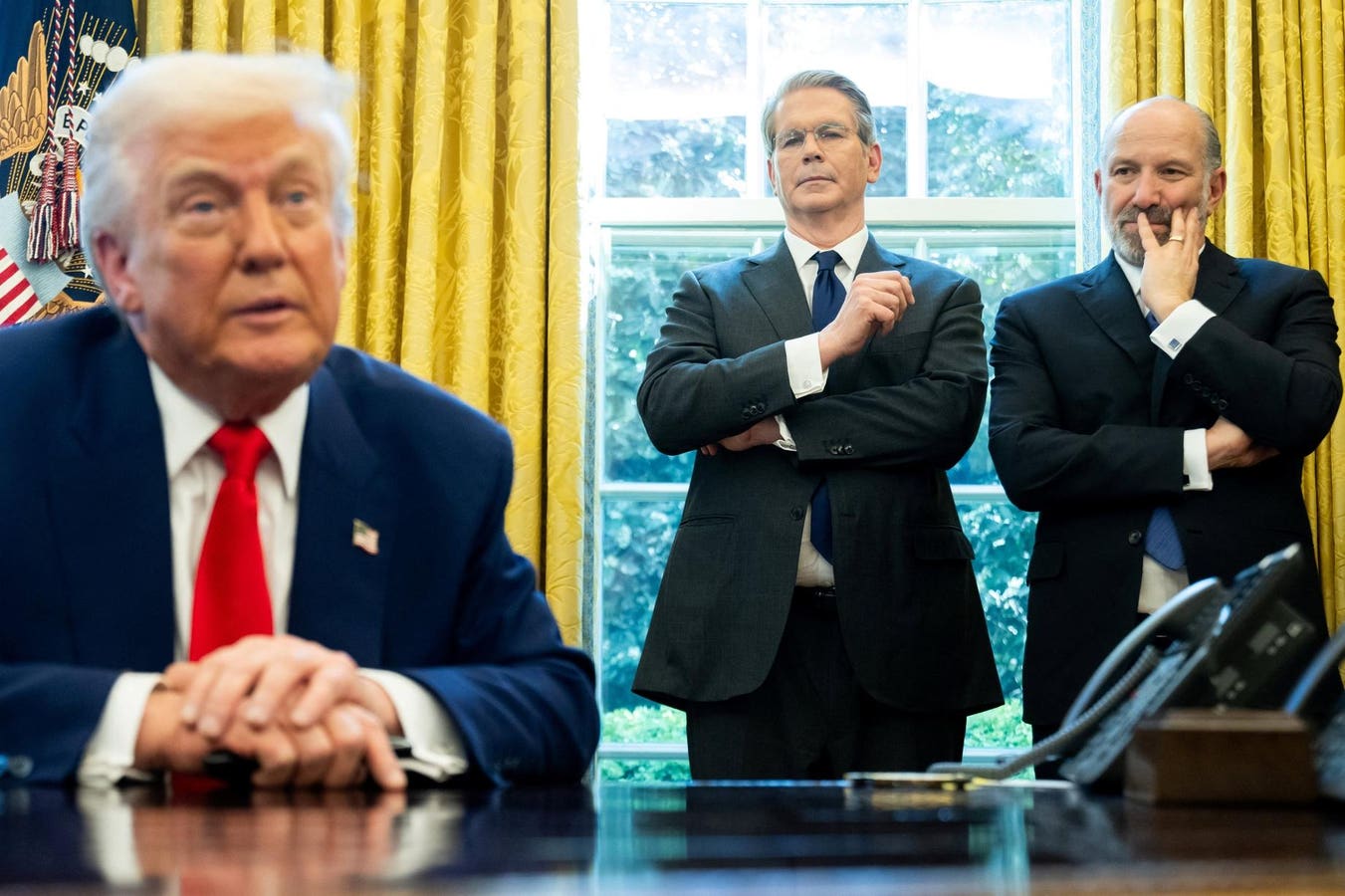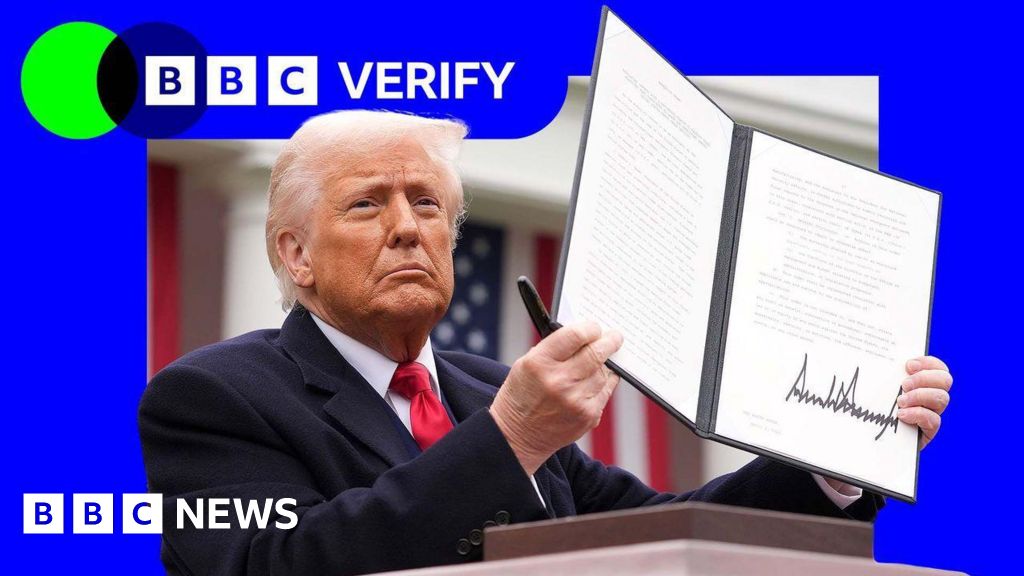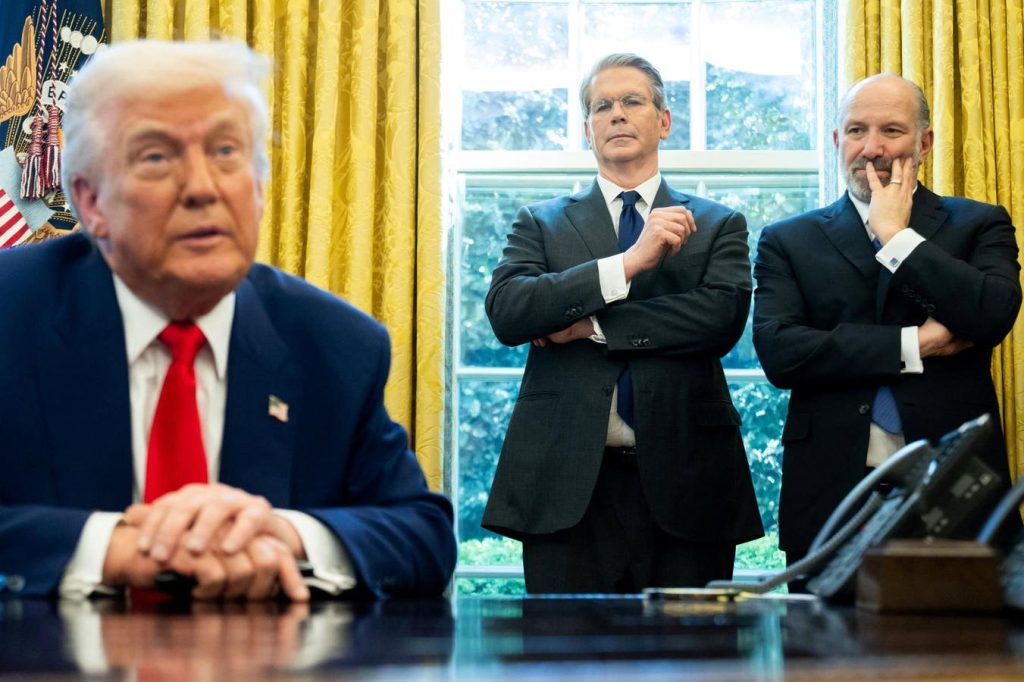Topline
Justice Neil Gorsuch recused himself from a major environmental case the Supreme Court is hearing oral arguments for on Tuesday, following activist pressure over his professional relationship with billionaire Philip Anschutz—underscoring how Anschutz and other oil industry billionaires could benefit from a favorable ruling by the conservative-leaning court.
Philip Anschutz at the Los Angeles Galaxy’s MLS match against Toronto FC on September 16, 2017 in … [+] Carson, California.
Key Facts
The court is hearing oral arguments in Seven County Infrastructure Coalition v. Eagle County, Colorado, which concerns a proposed railway in Utah and the scope of the environmental reviews that agencies conduct in order to approve major infrastructure projects.
While agencies have to review the potential impacts of the projects under the National Environmental Policy Act, the builders of the railway argue an appeals court ruling went beyond what the law requires, ordering a transportation board to consider things like oil and gas drilling and climate change impacts that are beyond their transportation-based remit.
The dispute concerns the oil industry, as part of the tussle over the railway is that it would allow for more oil and gas to be drilled and transported out of the region, and a more limited reading of the National Environmental Policy Act would broadly make it more likely that oil and gas companies’ projects will be approved, as they’ll undergo less scrutiny about their environmental effects.
Anschutz Exploration Corporation, led by billionaire Philip Anschutz, submitted an amicus brief urging the Supreme Court to limit the scope of environmental reviews, arguing a broad reading of the environmental review law allows groups opposed to oil and gas projects “to challenge, slow, and sometimes halt projects they oppose based on speculative impacts often far removed from the challenged project.”
Gorsuch recused himself from the case, and while he didn’t give a reason for recusing, the move came after Democrats and left-leaning watchdog group Accountable.US raised concerns about him hearing the case given his longtime ties to Anschutz—including representing him in court—and the billionaire’s interest in the case.
Anschutz wasn’t the only billionaire with an interest in the case: Energy Transfer LP, a company founded by billionaires Kelcy Warren and Ray Davis, also submitted a brief urging for more limited environmental reviews, arguing anti-oil and gas groups have “weaponized” the National Environmental Policy Act to “force their preferred substantive outcomes” by “blocking” projects or “at minimum delaying and increasing” their costs.
Forbes Valuation
Forbes values Anschutz’s net worth at $16.9 billion as of Tuesday morning, and values Warren and Davis’ net worths at $7.5 billion and $3.8 billion, respectively. The three are among dozens of billionaires whose wealth is derived from the oil and gas industry, and many of them would likely benefit from less strict federal rules governing oil and gas projects, though some of the richest are based outside the U.S.
What To Watch For
The Supreme Court will hear oral arguments in the case Tuesday but a ruling will not be announced for several months, coming out sometime before the court’s term ends in June.
Chief Critics
Environmental groups led by the Center for Biological Diversity and Eagle County, Colorado, have opposed the effort to limit the scope of environmental reviews in court, arguing the petitioners’ arguments go beyond the limits the law sets out about environmental reviews. Eagle County argued in a brief the position the oil industry is backing “dramatically remake[s]
” the law, and calls for imposing limits that “have no basis in [the law’s] text whatsoever.”
How Do Neil Gorsuch And Philip Anschutz Know Each Other?
Gorsuch has a lengthy professional history with Anschutz, with The New York Times reporting in 2017 the now-justice previously represented Anschutz and his company in numerous cases when Gorsuch was in private practice as a lawyer in Colorado. After Gorsuch left Colorado for a job at the Justice Department, the Denver Post reported Anschutz lobbied on the judge’s behalf for President George W. Bush to appoint Gorsuch to a seat on the 10th Circuit Court of Appeals. Anschutz’s attorney wrote a letter recommending Gorsuch to the court “at the request of Philip F. Anschutz,” describing the now-justice as “an exceptionally talented lawyer” who is “eminently qualif[ied]
Tangent
Oil and gas billionaires are already in a good position at the moment given Donald Trump’s impending presidency, as the president-elect’s policy agenda places a heavy emphasis on ramping up oil and gas drilling and curbing green energy and climate change initiatives. Oil industry donors gave approximately $75 million to various political committees to help Trump get elected, The New York Times reported in November, after The Washington Post reported Trump privately asked oil executives to give massive sums to his campaign as a “deal” for all the ways he would benefit them if elected. While a ruling in the oil industry’s favor at the Supreme Court will permanently limit the scope of agencies’ environmental reviews, Trump previously also restricted those reviews from including climate change impacts during his first term—a change he could likely impose again, meaning oil industry billionaires will still get at least a short-term boost regardless of how the court rules. Other policy moves Trump reportedly promised to oil executives include ending a Biden-era pause on permits for new liquefied gas exports, providing more leases for oil drilling in the Gulf of Mexico, reversing restrictions on oil drilling in the Alaskan Arctic and ending Biden-era regulations boosting electric vehicles, according to the Post.
Key Background
The Seven County Infrastructure case is one of a number of major environmental disputes the conservative-leaning Supreme Court has taken up in recent years, with justices typically ruling in favor of decreasing regulations even when there could be negative environmental consequences. The court has ruled in recent years to curb the Environmental Protection Agency’s ability to regulate emissions, weaken protections in the Clean Water Act and temporarily block a policy designed to limit air pollution, among other moves. Justices also ruled last term to broadly limit federal agencies’ ability to interpret the law to impose policies, which could have wide-ranging consequences for environmental rules. The pressure for Gorsuch to recuse from the case came as the Supreme Court has also come under broad scrutiny for apparent ethics issues, including conflicts of interest, as Justices Clarence Thomas and Samuel Alito have come under fire for participating in cases relating to the 2020 election despite Thomas’ wife helping efforts to overturn the 2020 election and Alito and his wife flying flags outside their homes that are associated with the “Stop the Steal” movement. Both justices have denied any wrongdoing, and Alito has said the flag-flying was entirely his wife’s doing. Unlike lower federal court judges, Supreme Court justices are not bound to an ethics code, and though they’re directed to recuse themselves from cases where they have a conflict of interest, there are no consequences for not doing so.
Further Reading
Trump, Koch And The Other Billionaires Influencing This Term’s Supreme Court Cases (Forbes)
Neil Gorsuch Has Web of Ties to Secretive Billionaire (New York Times)









